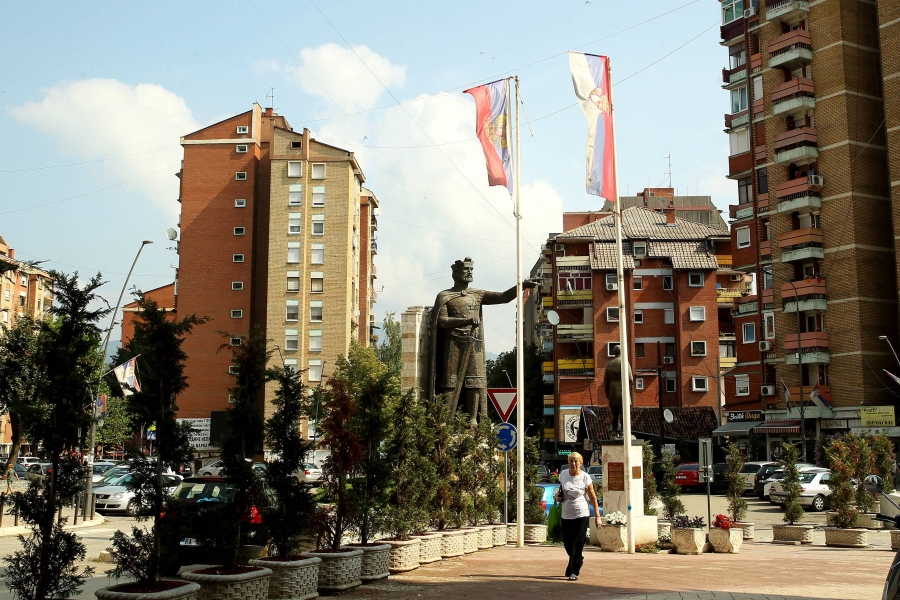In the past year, Pristinas aggressive approach towards the population in the North has destroyed the already low confidence in its intentions and policies towards this part of Kosovo, says an analyst from the northern part of Mitrovica, commenting on the findings of Demostats focus groups.
The biggest problem currently facing the Serb community in northern Kosovo is that its resistance to Pristinas intention to forcibly integrate northern Kosovo into Kosovos constitutional law system has been completely delegitimized. Namely, in earlier years, this struggle had the character of popular resistance, clearly defined political ideas and consensus of all social actors, thus legitimizing such an attitude by the international community, which prevented unilateral and violent moves by Pristina over that period. After 2012 and the rise to power of the Serb List, this resistance takes on a party character, is defined by vague, sometimes even contradictory political ideas and absorbs the interests of a criminal character.

In the past year, Pristinas aggressive approach towards the population in the North has destroyed the already low confidence in its intentions and policies towards this part of Kosovo, says an analyst from the northern part of Mitrovica, commenting on the findings of Demostats focus groups.
The biggest problem currently facing the Serb community in northern Kosovo is that its resistance to Pristinas intention to forcibly integrate northern Kosovo into Kosovos constitutional law system has been completely delegitimized. Namely, in earlier years, this struggle had the character of popular resistance, clearly defined political ideas and consensus of all social actors, thus legitimizing such an attitude by the international community, which prevented unilateral and violent moves by Pristina over that period. After 2012 and the rise to power of the Serb List, this resistance takes on a party character, is defined by vague, sometimes even contradictory political ideas and absorbs the interests of a criminal character.

The results of qualitative research of Demostat look authentical, that is, they reflect exactly what we who live in the north of Kosovo can feel or hear in everyday interactions with citizens. And this is mainly a sense of insecurity and a general distrust in political actors who manage the crisis, says Miodrag Marinkovic, Analyst and Founder of the Center for Affirmative Social Action (CASA) from the northern part of Mitrovica for Demostat, commenting on the findings of our focus groups that we organised after the tragic events that took place on September 24th in Banjska (https://demostat.rs/sr/vesti/
As Marinkovic explains, over the past year, Pristinas aggressive approach towards the population in the North has ruined even the little confidence in its intentions and policies towards this part of Kosovo.
- Disproportionate use of force, abuse of authority, outbursts of ethnic hatred by police force members towards the population in the North, illegal expropriation, are just some of the causes of the extremely negative perception of Pristina. On September 24th, Albin Kurti received an unexpected “gift” in Banjska, which validated this approach in the eyes of the international community, however, this does not justify aggressive, unprofessional and even illegal actions of special police forces towards the civilian population, before or after that event, our interlocutor says.

Photo: Printscreen Youtube
According to Marinkovic, the effects of the conflict in Banjska on the interests of the Serbian community and its struggle for their fulfilment are disastrous. "This incident delegitimised the intense demands for the withdrawal of special police forces that Kosovo Serbs, politicians, civil society and other community leaders have channelled to representatives of the international community in the past year. Just when this constant pressure began to yield results and when the international community began to consider the possibility of taking over the primary responsibility for security in the north of Kosovo, “Banjska” took place. After it, these demands for the withdrawal of special police forces are no longer taken seriously,” he said.
Miodrag Marinkovic notes that the biggest problem currently facing the Serbian community in the north of Kosovo is that its resistance to Pristinas intention to forcibly integrate the north of Kosovo into the constitutional law system of Kosovo is completely delegitimised.
- Namely, over the previous years, this struggle had the character of popular resistance, clearly defined political ideas and consensus of all social actors, thus legitimising such an attitude by the international community, which prevented unilateral and violent moves by Pristina over that period. After 2012. and the coming to power of the Serb List, this resistance takes on a party character, is defined by vague, sometimes even contradictory political ideas, and absorbs the interests of a criminal character. Albin Kurti, unfortunately, uses this as a justification for the general criminalisation of the north of Kosovo and the suppression of any resistance to the forced integration he is carrying out in the North. It does this by arbitrary application and biased interpretation of the law, which accuses people who protest of violating the constitutional order, and abolishes perpetrators of violence in the ranks of the police disproportionately with small penalties, or, in a large number of cases only with disciplinary measures. In such circumstances, a large number of residents are afraid and demotivated to actively participate in some form of protest. In addition, a part of the authentic resistance of the community to the arbitrariness of Pristina was suppressed by Belgrade itself, because its bearers were critical of the Kosovo policy of Aleksandar Vucic. Belgrade does this by using the usual methods of blackmail and threats to political leaders, in order to maintain complete control over the North. All this cumulatively produces a general sense of insecurity and endangerment of ordinary people in the north of Kosovo, who in increasing numbers seek a normal life outside Kosovo, concludes the interlocutor of Demostat.
When it comes to trust, focus groups organized by Demostat showed that the Serb community in Kosovo trusts KFOR the most. As the respondents explain, it is believed that this mission can ensure security and security, and this primarily refers to protection from repression by Pristina. Also, Serbs from Kosovo and Metohija have great confidence in the Diocese of Raska-Prizren.
In all societies there are issues that are rather being skipped. Certain...
The neoliberal path, started in 2001, has led to especially bad results in Serbi...
For centuries, the region was subsumed within the Ottoman and Hungarian Empires,...
"Serbia has returned to the systemic and anti-systemic position of the political...
In reality, Serbia is closer than ever to NATO. In the course of the last five y...